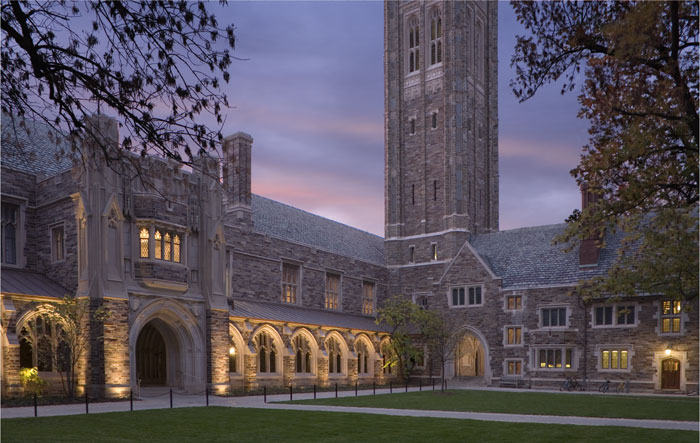 Parler
Parler Gab
Gab
- Twenty-five states are offering in-state tuition and state financial aid to illegal aliens, despite a 1996 federal law prohibiting this unless extended to all U.S. students, regardless of state residency.
- The federal law lacks a private right of action, enabling states to avoid consequences for violating the statute. Courts have consistently dismissed lawsuits by American students and parents challenging these policies.
- American students are forced to make significant sacrifices, such as enlisting in the military or foregoing higher education, due to the high cost of tuition, while illegal aliens receive subsidized tuition.
- The federal government must enforce the existing law, and Congress should amend the statute to include a private right of action, allowing American citizens to sue states that discriminate against them in higher education policies.
Federal law being ignored
In 1996, Congress passed the Illegal Immigration Reform and Immigrant Responsibility Act, signed into law by President Bill Clinton. This legislation included a provision, codified at 8 U.S.C., Section 1623, which explicitly prohibits states from offering in-state tuition to illegal aliens unless they provide the same benefit to all American students, regardless of their state of residence. The law was designed to ensure fairness, preventing states from discriminating against U.S. citizens while extending benefits to those who are not lawfully present in the country. Yet, 25 states—including Texas and California—have flouted this federal statute, offering in-state tuition to illegal aliens while charging out-of-state American students significantly higher rates. For the 2024–2025 school year, the average cost of tuition for out-of-state students at public colleges was nearly 25,000, compared to just 11,000 for in-state residents. This disparity is not just a financial burden; it’s a slap in the face to American families who are already struggling to afford higher education.Legal loophole that keeps it alive
One of the key flaws in the 1996 law is that it does not provide a private right of action, meaning individuals or organizations cannot sue to enforce it. As a result, states have faced little to no consequences for their actions. The Justice Department has never taken enforcement action against these states, and courts have repeatedly dismissed lawsuits brought by outraged parents and students. For example, in Day v. Bond (2007), the U.S. Court of Appeals for the 10th Circuit ruled that out-of-state students lacked standing to sue Kansas for offering in-state tuition to illegal aliens. Similarly, in Martinez v. Regents of the University of California (2010), the California Supreme Court upheld a state law allowing illegal aliens to pay in-state tuition, claiming it did not violate federal law or the 14th Amendment. Even in Young Conservatives of Texas Foundation v. Smatresk (2021), the 5th Circuit Court of Appeals ruled against out-of-state students challenging Texas’s policy, arguing that the law did not impose any duty on Texas related to U.S. citizens. These rulings highlight a disturbing trend: states are exploiting legal loopholes to prioritize illegal aliens over American citizens, and the federal government has done nothing to stop it.Human cost: American students left behind
The consequences of this inequity are devastating for American families. A 2021 survey by ECMC Group found that the likelihood of high school students attending a four-year college dropped nearly 20% in just eight months, with affordability cited as the primary concern. For many, the dream of higher education is being replaced by the harsh reality of unaffordable tuition and mounting debt. Jason Neuharth, an 18-year-old high school senior from Minnesota, is one such example. “I grew up with not a lot of money, and that was a fear of mine—the money,” he said. “I would not be able to feasibly pay for college.” Instead of pursuing his dream of attending a technical school, Neuharth enlisted in the National Guard, committing to an eight-year service term. “This second option, this get-out-of-jail-free card, which was the military, seemed like a no-brainer.” Neuharth’s story is not unique. Across the country, young Americans are being forced to make similar sacrifices, while illegal aliens are handed taxpayer-subsidized tuition breaks. This is not just an economic issue; it’s a moral one. Why should American citizens be forced to subsidize the education of those who broke the law to enter our country?Call to action: Enforce the law
There are two clear solutions to this crisis. First, the federal government must enforce the existing law. The Trump administration had the opportunity to take action but failed to do so. Future administrations must prioritize this issue and hold states accountable for violating federal statute. Second, Congress must amend the law to include a private right of action, empowering American citizens to sue states that discriminate against them. This would create a powerful deterrent, ensuring that states cannot continue to prioritize illegal aliens over their own citizens. The time for action is now. American students should not be forced to bear the burden of a broken system while illegal aliens reap the benefits. It’s time to put American citizens first and restore fairness to our higher education system. The American Dream depends on it. Sources include: TheEpochTimes.com HireEdImmigrationPortal.org CNBC.comDOGE is right to defang the CFPB
By News Editors // Share
How rich nations poison the Global South
By Willow Tohi // Share
Israel planning military strike on Iran’s nuclear facilities
By Belle Carter // Share
Governments continue to obscure COVID-19 vaccine data amid rising concerns over excess deaths
By patricklewis // Share
Tech giant Microsoft backs EXTINCTION with its support of carbon capture programs
By ramontomeydw // Share
Germany to resume arms exports to Israel despite repeated ceasefire violations
By isabelle // Share










